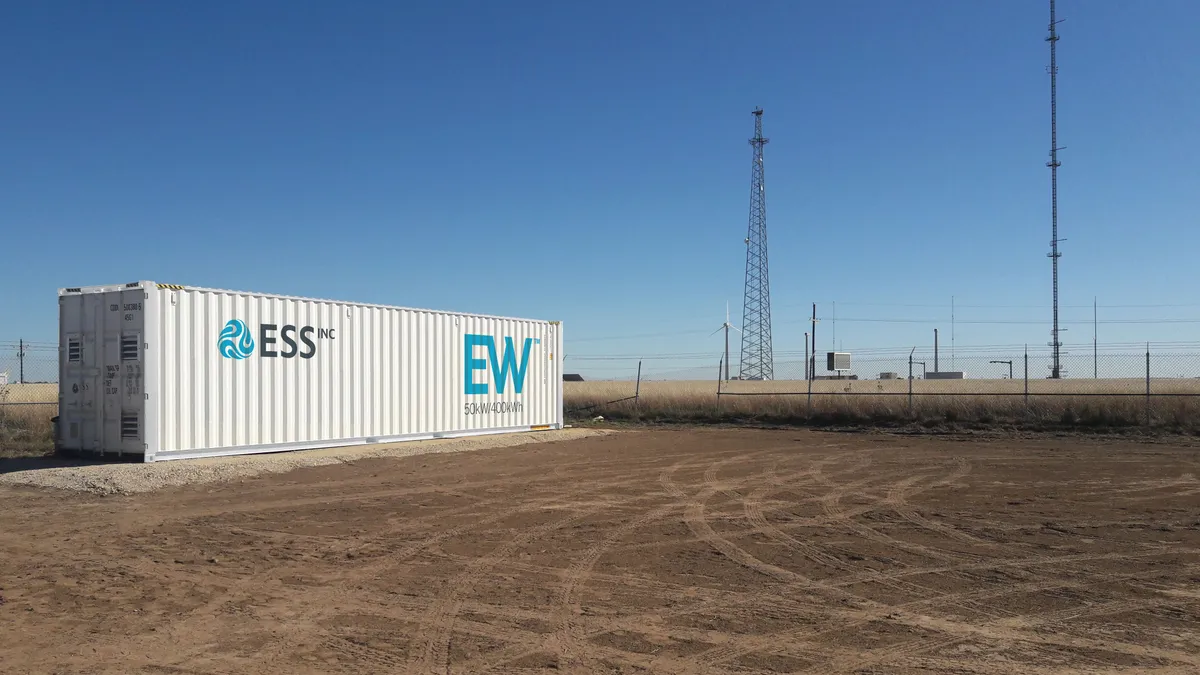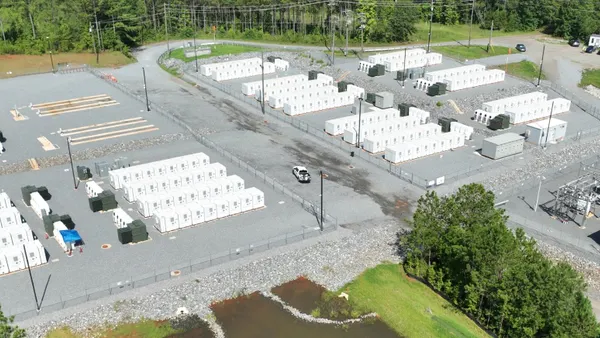Dive Brief:
- Honeywell has invested $27.5 million in long-duration energy storage provider ESS Tech, an initial strategic equity investment that is part of a broader collaboration to advance the development and market adoption of iron-flow battery energy storage.
- Under this new partnership, Honeywell will also be buying and reselling ESS products as part of its broader offerings to the market, essentially “combining our long-duration energy storage solutions with their control software services offerings,” Eric Dresselhuys, CEO of ESS said during a webcast Monday.
- The deal comes as the energy sector experiences a growing interest in the role long-duration energy storage can play on the grid. ESS’ iron flow battery chemistry can provide up to 12 hours of energy storage, and doesn’t use critical materials associated with lithium-ion batteries.
Dive Insight:
Under the new agreement, Honeywell plans to purchase $300 million in ESS products over the next six years, with $15 million prepaid. ESS expects that this will open up incremental market opportunities, segments and use cases for the company, Dresselhuys said. In addition, ESS will be taking control of Honeywell’s intellectual property related to flow batteries.
“Honeywell has extensive experience across a range of advanced materials and solutions and this move will allow us to create a single, focused set of solutions related to long-duration energy storage,” Dresselhuys added.
In 2021, a report from the Long Duration Energy Storage Council and McKinsey & Co found that by 2040, long-duration energy storage could deploy 1.5 TW to 2.5 TW of power capacity globally. That could represent 85 TWh to 140 TWh of energy capacity by 2040, and store up to 10% of all electricity consumed, reflecting a cumulative investment of $1.5 trillion to $3 trillion, according to the report.
“The demand for long-duration energy storage represents a compelling market opportunity within the energy transition and the combination of Honeywell and ESS technology can accelerate decarbonization for the commercial, industrial and utility sectors,” Bryan Glover, chief growth officer with Honeywell Performance Materials and Technology group, said in a statement.
Long-duration energy storage provides a critical link to ensuring reliability and resiliency in the energy system, not met by existing short-duration lithium-ion batteries, Dresselhuys said.
“When we first talked, [Honeywell] made it clear that they understood the dramatic impact that long-duration energy storage would have on the decarbonization of the grid,” he added.
Another area of collaboration between Honeywell and ESS could be on the supply chain front. Iron-flow battery supply chains should be accessible and relatively less volatile from a pricing and availability perspective, Dresselhuys said.
“If you look at what Honeywell has done historically, they’ve got great strength around the materials science core technology parts, as well as power electronics — and so hopefully we’ll be able to tap into those resources to broaden our supply chain,” he said.
“It is great to see a growing number of industrial partners realizing the need for long duration energy storage... as it allows for more commercialization of the technology and lower costs for the industry,” Julia Souder, CEO of the LDES Council, said in an email.
“The increase in this type of agreement highlights the need for LDES as a key component to decarbonize - as energy storage plays a critical role in reaching global net zero goals,” Souder added.















